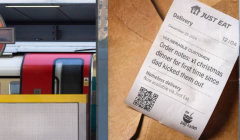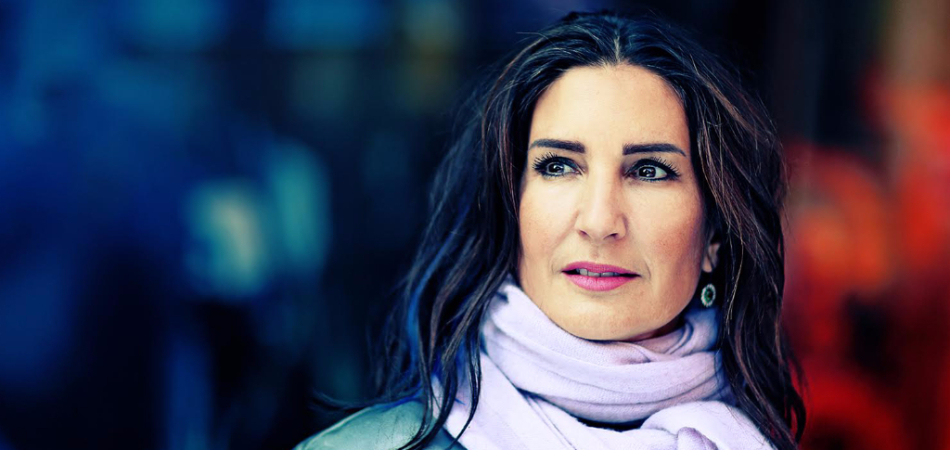
Soup Kitchen London and JustEat team up to drive donations
The campaign from Wonderhood Studios allowed people to order a meal for the homeless through Just Eat over the festive period.
Founder, Studio of Art and Commerce


Career to date:
2016, Founder, TechSource
2015, Founder, Studio of Art and Commerce
2012, Global Brand Communications & Creative Director, Bacardi Global Brands
2004, Global Brand Communications & Media House Director, Red Bull
Heide Cohu: I’ve come from client side, which is a bit odd, but it’s lovely because my founding partner Mark [Cramphorn - ex-BBH] and I come together quite nicely as different sides of the same coin.
I was at Red Bull and was convinced there was a different way of working creatively with brands and weaving them into people’s lives. I’ve come from more of a creative perspective but I’m not a blue-chip trained, structured agency ECD. I have a creative sensibility about what people love, understanding culture and particularly young people. My love is the work, the creative side. I’m not a very good completer; I’m pretty good at big ideas and connecting people, particularly young people and women and girls, who are the lifeblood of this industry.
Heide Cohu: I did a sports science degree because I was an international athlete. I played lacrosse for Scotland. I was good at sport and art and not very good at anything else at school. I played tennis, then I worked at the governing body so travelled a lot with sports teams, engaging and recruiting new audiences as Director of Comms.
I got recruited by Red Bull and spent nine amazing, tough years there. I went from the UK team, after about a year, into the international team. I got to do my dream. I was working on big global platforms like the air racing and X Fighters, Red Bull Music Academy, Formula 1.
I found my way into the Space Project with Felix Baumgartner which was an amazing experience, the hardest thing I’ve ever done professionally and personally. There was a lot of travel and pressure; it was unknown science and eventually, despite everyone else not believing we’d do it, we did it.
Then I went to Bacardi as Global Creative Director of Experience & Engagement. We set up a brand-new team to modernise the marketing for a portfolio of amazing brands. I had the support of an amazing CMO, Andy Gibson. We took the brands back into more of an experience, emotional engagement space rather than relying on just advertising.
Bacardi was a real eye-opener because we had thousands of agencies retained across the world. But I couldn’t find an agency that understood big ideas that could live in several channels, and flex and evolve, engaging in people’s lives and culture.
After three years, I thought, I love the work but I’m getting too far away from it in a corporate hierarchy. Andy left to go to WBA - that was my jumping off point.
Mark and I wanted to create a brand building agency that understands brands at its core, and connect with people in unusual, memorable ways. Advertising’s still part of the mix but also to have events and content, and a network of brilliant creative people that we could pull in when needed.
“A lot of people talk about content and culture, words that get overused. Culture for me is weaving brands into people's lives and making them relevant."
Heide Cohu: I’m always a bit suspicious of anyone that claims to be unique because I don’t think anyone is. It was definitely the thing I couldn’t find as a client.
A lot of people talk about content and culture, words that get overused. Culture for me is weaving brands into people’s lives and making them relevant.
It’s the younger, fast-moving, really progressive brands and teams that we have the most fun with. For us it’s about, what is the cultural change that a brand can affect? What can you contribute to people’s lives that will actually make a difference? My daughters are still quite young but they subconsciously make choices about shops and brands that they think are doing some good to the world.
Heide Cohu: Working with No7, we’ve created the No 7 Face Study, quite a big digital platform with close-up, but entertaining science about what skincare and anti-ageing actually means.
We’ve been working with BrewDog, which has been the most incredible journey. Working with James Watt, the founder, has been like riding in a Formula 1 car. He’s very clear about what he wants, realising that the power of individuals, together, can bring great tasting beer to the world much faster than traditional marketing. Their brand was born from recruiting Equity Punks, and we had this idea: why don’t we bring more people into the brand and the craft beer revolution, by talking through the Equity Punks – they now have effectively 55,000 Brand Ambassadors around the world?
These guys are entrepreneurs, they think really quickly, they’re really intolerant of anything other than greatness, so you’re living by the seat of your pants all the time - it’s exciting.
Heide Cohu: I’m bound to go with brands that are doing something culturally really interesting. I think Airbnb, what they did by putting the whole of Sweden on Airbnb. They use advertising to promote the activity as opposed to just advertising the brand.
There’s a brand called REI in the US, an outdoor clothing brand. Last autumn, on Black Friday, they launched #OptOutside. As supporters of the great outdoors, they closed all their stores on the biggest holiday shopping day of the year, and said ‘get away from the shopping madness and go and enjoy the outdoors.’ I loved that.
MullenLowe did some great work for a charity called ‘Inspiring the Future’, where they worked with some primary school kids to see what stereotypical views of men and women you grow up with. They talked to kids about firemen and surgeons and all the kids were talking about them being men. Then they brought all these surgeons and firemen into the room and they were all women, and captured the whole experiment on film - brilliant.
Heide Cohu: I really like Sid Lee. It’s hard for quite siloed specialist agencies to morph into more upstream, brand marketers but they’ve done it really well. They started off as big event staging specialists, but now they’re talking brand strategy, certainly in North America, developing ideas and programmes that are ongoing platforms as opposed to single ideas.
I’ve got a soft spot for Mother because I think they remain true to themselves. I admire their advertising work; it’s still amazing and they understand the importance of trying to expand beyond OOH and TV.
“I think there's a real power in collaborative work with like-minded agencies...advertising will still be part of the mix but understanding brands and seeing how they can change people's lives is really important."
Heide Cohu: We’ve probably got quite a skewed view, but I hear all the time of big brands that struggle with networked agencies. There are some really brilliant networks out there, but I think there’s a real power in collaborative work between independent, like-minded agencies, that are the best at what they do. I’m conscious that, although we’ve grown pretty fast, we don’t want to be too big, but rather to grow like a cottage industry, with hubs of people working in different markets. We’ve got a hub team working in New York and Paris.
Going forward, advertising will still be part of the mix but understanding brands, the power they have and seeing how they can impact people’s lives for good, is really important. Media is going to continue to fragment. Disruptive broadcast messages I don’t think are going to work in the future, but working with brand partnerships can be incredibly productive.
Heide Cohu: To gather more brilliant people that are all passionate. The thing that gets me up every day is knowing that everyone loves their job, or if they see an issue, they’ll openly talk to me or Mark. There are tons of big agencies that they could go to; some people consciously choose a small agency.
I would love to work with more progressive brands, and more fast-moving young start-ups because I love working with other passionate people. I don’t have an ambition in terms of size. We’re very ambitious in terms of revenue and income because I think there’s a real momentum building now for us.
I would be super happy if we could just keep being really close to great work, which I think is the reason that a lot of us are here.
Heide Cohu: I’ve been really shocked coming from client side into the agency world; I think the pitch process can be crazy & quite unfair. The amount of work that agencies can be expected to do in some pitches, for free, over months, seems commercially unviable and also unfair.
The days of big long pitches are probably waning now and I think the way you demonstrate how brands can play a part in people’s lives will no longer driven by PowerPoints and spreadsheets. [For brands] it’s unlikely that you’re going to get what you need from talking to one agency. Talk to people who have an understanding about ideas that can sit in different touch points or channels.
We’ve had to really fight hard against some big agencies to get work so we have to give everything and be brilliant all the time. You can’t afford to be lazy which is a good thing.
Heide Cohu: Andy Gibson is one of the most gifted marketers. He has a very clear point of view, he’s brave and will take calculated risks. I think David Abrahams, the outgoing CEO from Channel 4, has an amazing mix of experience, from creative, advertising, brand marketing and media – he actively seeks new solutions.
Out of work, the captain of the Olympic GB women’s hockey squad [Kate Richardson-Walsh]. What those girls achieved and what they did on the British scene, with the whole country behind them, is amazing. She is such an inspirational leader.
Creatively, I love women like Phoebe Philo at Céline. She’s transformed the house and the brand single-handedly, her vision and her seemingly low key, non-egotistical way. She’s built a powerhouse, which for high-end fashion, is an incredibly difficult thing. I really admire women that are strong and successful and sometimes have to fight through a male orientated world.
How can brands give customers the tools to express their own identity?
I think it’s brands being part of people’s lives. On the BrewDog piece, it was about giving the Equity Punks the tools to do their own thing; they were in complete control. There was a guerrilla campaign to go and put your own posters and stickers out. The brand is owned and created by a huge workforce of ambassadors.
It really feels like in the future, brands working together with people can help change the world for good, which won’t mean relying heavily on one-way advertising.
Looks like you need to create a Creativebrief account to perform this action.
Create account Sign inLooks like you need to create a Creativebrief account to perform this action.
Create account Sign in